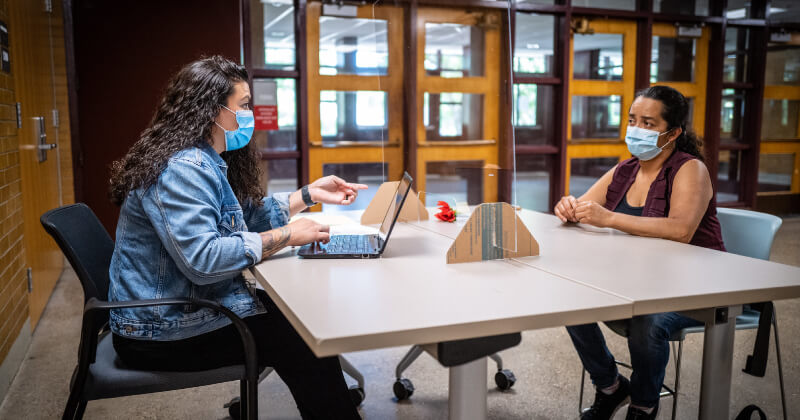
Photo by Phil Roeder
Often, when an organization receives funding for a community health project, it develops the framework to assess impact with the needs and goals of the funder in mind – or the funder itself may provide the metrics it requires. How many people will be reached? What percentage of people will rate the resources highly? How did the project impact participant’s knowledge, attitude, and behavior? These metrics may align with what the organization and their target audience need – or not. It is hard to know when the community or the organization is not brought into the process of evaluation in a collaborative way.
Migrant Clinicians Network has joined several projects to lend our expertise in building and executing community-centered evaluation, with the goal of increasing engagement with local communities to ensure that projects meet community members’ own goals and metrics.
In a new project with Futures Without Violence, Alianza Nacional de Campesinas, and Lideres Campesinas, for example, Community Health Workers (CHWs) will build on their knowledge of Adverse Childhood Experiences (ACEs) and receive training to educate their agricultural worker neighbors and peers about ACEs. MCN is spearheading the community evaluation component of this project and is working hand and hand with our partners to develop a participatory approach to evaluation. One of the key metrics for the CHWs is looking at their own empowerment regarding education of others and measuring their self-efficacy along with the knowledge gain. This project will also involve a pilot with a community health center in California where Medi-Cal has added ACEs screening as a reimbursable item. This will foster more clinicians to have important conversations with their patients about ACEs and their long-term effects on health.
“Our expertise is in understanding both the farmworker community needs and the work that Community Health Workers do – and recognizing the challenges in evaluation,” said Amy K. Liebman, MPA, MCN’s Chief Program Officer of Workers, Environment, and Climate, who oversees this project. “We also have a diverse and largely bilingual team with backgrounds in psychology, health promotion, evaluation, and worker health and safety.”
Keep up to date with MCN’s new projects and access the resources developed from the projects on our active blog: www.migrantclinician.org/blog.
Read this article in the Summer 2022 issue of Streamline here!Sign up for our eNewsletter to receive bimonthly news from MCN, including announcements of the next Streamline. |